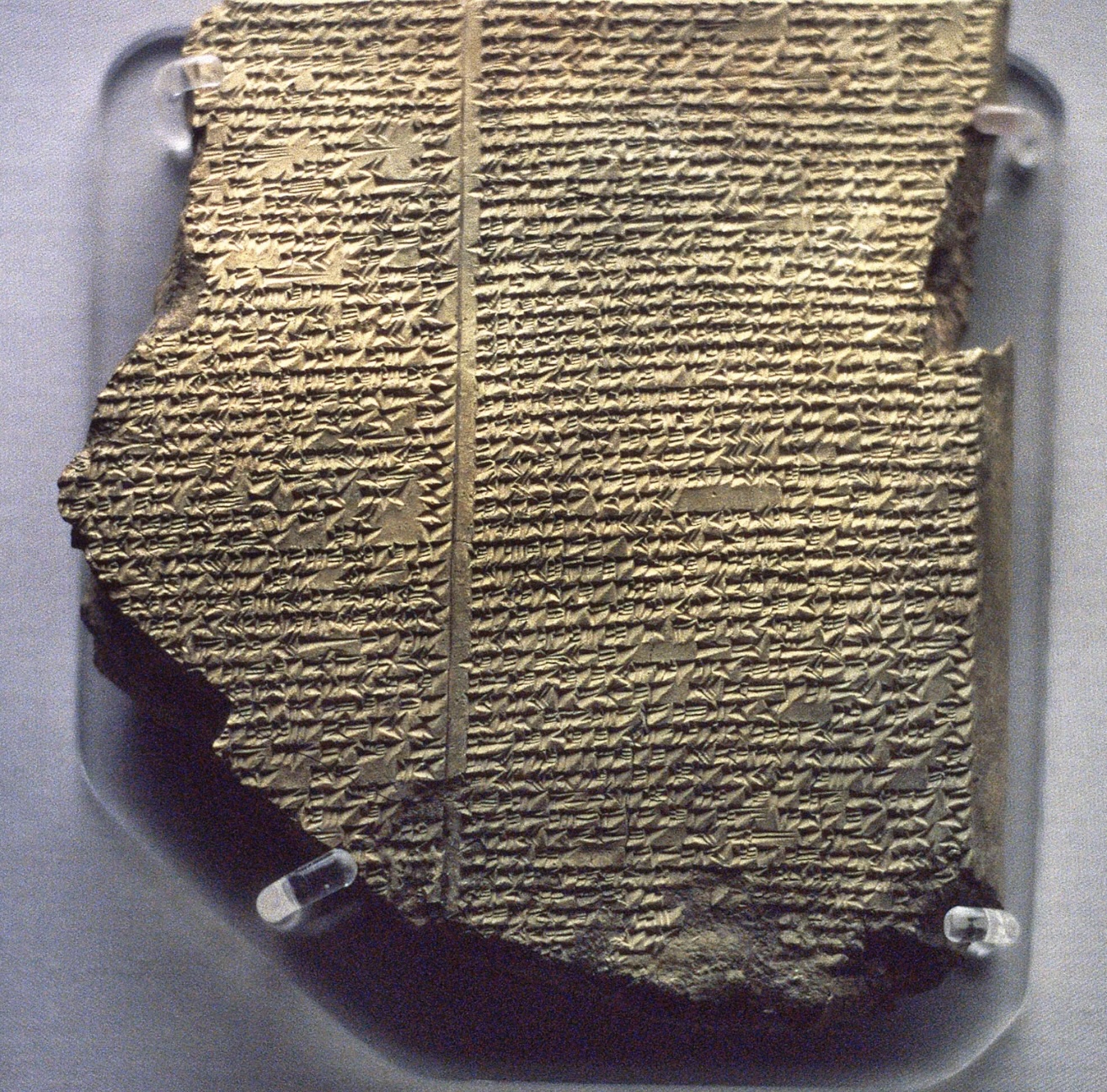
Epic of Gilgamesh
Theodoros Kafantaris
Published on November 25, 2025
Introduction
The Epic of Gilgamesh isn’t just old—it’s ancient. We’re talking “older than your oldest history professor’s favorite sandals.” Composed around 2100 BCE, this Mesopotamian narrative predates Homer, predates the Bible, and predates most myths we still reference today. Yet for all its age, the story feels wonderfully human: friendship, grief, ego, quests, mortality, and the desire to leave a mark on the world.
Why is it significant? Because it is widely regarded as the earliest surviving work of literature in history. It shaped mythic storytelling, influenced religious texts, and still sparks debates about heroism, masculinity, and the search for meaning. If you’ve ever wondered where epic storytelling began—this is the seed.
About the Author
Author: Unknown (which is mysterious enough to be fun)
The Epic of Gilgamesh comes from a time when authorship wasn’t a branding exercise but a cultural tradition. The tale was passed down orally, compiled by multiple scribes, and written in cuneiform on clay tablets discovered in the ruins of ancient Mesopotamia.
The “author,” if we can call them that, existed in a world of mythic kings, city-states, and storm gods. Their style is poetic, symbolic, and surprisingly introspective. The narrative wrestles with questions philosophers still argue about today.
Interesting notes:
-
The story includes a great flood narrative similar to Noah—centuries earlier.
-
Gilgamesh may have been a real king—though probably not as muscle-bound as depicted.
-
Archaeologists pieced the story together like a divine jigsaw puzzle, thanks to shattered tablets.
In other words, the author may be unknown, but the cultural fingerprints are unmistakable.
Story Overview
1. Gilgamesh the Mighty (and Maybe Too Much)
We begin in the city of Uruk, where King Gilgamesh is powerful, ambitious, and—let’s be honest—a bit unbearable. His people pray for relief from his overwhelming ego. The gods respond by creating Enkidu, a wild man of strength to rival the king. Their clash turns into camaraderie, giving us one of history’s first celebrated bromances.
2. The Heroic Quest and the Cedar Forest
Newly bonded, Gilgamesh and Enkidu embark on a daring quest to defeat Humbaba, the monstrous guardian of the Cedar Forest. They succeed through bravery, teamwork, and divine favor—though the victory has consequences. The goddess Ishtar proposes to Gilgamesh, is rejected, and sends the Bull of Heaven in a divine tantrum. The heroes slay the bull, but their glory comes at a dreadful cost.
3. Loss, Grief, and the Crumbling of Certainty
The gods decree Enkidu must die as punishment. His death devastates Gilgamesh, shattering his confidence and sense of immortality. This section is raw, emotional, and philosophical—the first recorded depiction of grief’s transformative power. Gilgamesh realizes that even kings cannot escape death.
4. The Search for Eternal Life
Gilgamesh journeys across deserts, mountains, and cosmic oceans seeking Utnapishtim—the only mortal granted eternal life. He learns the story of the great flood, fails several tests of endurance, and discovers a plant that grants youth—only to lose it to a serpent. The symbolism practically sparkles.
5. Return to Uruk and the Wisdom of Mortality
Gilgamesh returns home, wiser and humbled. He recognizes that legacy, not immortality, defines human achievement. The epic ends not with triumph, but with acceptance—a surprisingly modern emotional arc.
Key Takeaways
-
Friendship can transform even the most flawed among us. Gilgamesh becomes humanized through connection.
-
Confronting mortality is central to human identity. The epic forces readers to examine their own sense of finitude.
-
Power without humility leads to ruin. Leadership requires more than strength—it requires empathy.
-
Stories preserve our legacy when our bodies cannot. The epic itself proves its point by surviving millennia.
-
Myth reflects cultural truths shared across civilizations. The flood narrative highlights universal storytelling threads.
Why This Book Is a Must Read
The Epic of Gilgamesh earns its place in any “100 Books You Must Read” list because it is the root system from which much of world literature grows. It explores timeless themes with striking clarity and emotional resonance, reminding us that ancient humans worried about the same things we do: friendship, purpose, aging, loss, and the desire to matter. Engaging, surprising, and philosophically rich, it bridges the gap between past and present—showing that our hearts haven’t changed nearly as much as our technology.

